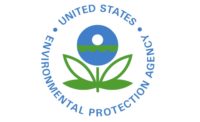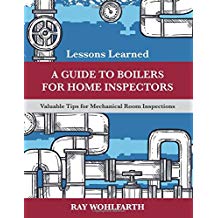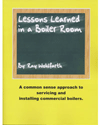AHRI Calls On EPA To Modify HCFC Rule
The
Air-Conditioning, Heating, and Refrigeration Institute (AHRI) called on the
Environmental Protection Agency (EPA) to modify its proposed rule governing the
sale of equipment pre-charged with HCFC-based refrigerants (R-22, R-142b, and
their blends).
In testimony before the EPA, AHRI Vice President of Regulatory Policy and Research Karim Amrane stated that the proposed rule "goes well beyond its original intent," which was to close a loophole on imported products containing HCFCs, to match the ban on domestic manufacturing of products that use virgin R-22 or R-142b beginning January 1, 2010.
While the proposed rule would close this loophole, it also would introduce new problems that could have a devastating effect on U.S. manufacturers. The proposed rule contains an unconventional definition for the "date of manufacture" - one that shifts the meaning from the date the equipment leaves the factory to the date it is installed. Left unchanged, this definition would ultimately accelerate the phaseout timeline by six to 12 months because manufacturers would likely immediately stop producing condensing units charged with virgin HCFC refrigerants.
Amrane said that industry will manufacture an estimated 2 million HCFC condensing units in 2009, and if they were unable by law to be sold, stranded inventory costs could be well in excess of $500 million, "enough to bankrupt several manufacturers and suppliers," he said.
On behalf of AHRI, Amrane also forcefully objected to a provision in the proposed rule that would prevent U.S.-based manufacturers of HCFC-charged equipment from exporting it to Article 5 countries where, he said, "it is perfectly legal" to use those refrigerants. Keeping that provision intact would disadvantage and penalize U.S. manufacturers because their foreign competitors would face no such ban in those nations. The net effect, said Amrane, would be "the export of U.S. manufacturing jobs."
Finally, Amrane called on the EPA to modify the rule to exempt pre-charged appliance components, such as thermostatic expansion valves (TXVs), from the refrigerant ban. Failure to do so, he said, would prevent consumers from obtaining needed replacement parts for the installed-base of HCFC equipment.
The solution, according to Amrane, would be for the EPA to modify the rule to use a more conventional definition of the term "manufacture" to mean "when the product leaves the manufacturer's final assembly process, is packaged for shipment, and placed into initial inventory;" and to exempt products intended solely for export and pre-charged components from the rule.
In testimony before the EPA, AHRI Vice President of Regulatory Policy and Research Karim Amrane stated that the proposed rule "goes well beyond its original intent," which was to close a loophole on imported products containing HCFCs, to match the ban on domestic manufacturing of products that use virgin R-22 or R-142b beginning January 1, 2010.
While the proposed rule would close this loophole, it also would introduce new problems that could have a devastating effect on U.S. manufacturers. The proposed rule contains an unconventional definition for the "date of manufacture" - one that shifts the meaning from the date the equipment leaves the factory to the date it is installed. Left unchanged, this definition would ultimately accelerate the phaseout timeline by six to 12 months because manufacturers would likely immediately stop producing condensing units charged with virgin HCFC refrigerants.
Amrane said that industry will manufacture an estimated 2 million HCFC condensing units in 2009, and if they were unable by law to be sold, stranded inventory costs could be well in excess of $500 million, "enough to bankrupt several manufacturers and suppliers," he said.
On behalf of AHRI, Amrane also forcefully objected to a provision in the proposed rule that would prevent U.S.-based manufacturers of HCFC-charged equipment from exporting it to Article 5 countries where, he said, "it is perfectly legal" to use those refrigerants. Keeping that provision intact would disadvantage and penalize U.S. manufacturers because their foreign competitors would face no such ban in those nations. The net effect, said Amrane, would be "the export of U.S. manufacturing jobs."
Finally, Amrane called on the EPA to modify the rule to exempt pre-charged appliance components, such as thermostatic expansion valves (TXVs), from the refrigerant ban. Failure to do so, he said, would prevent consumers from obtaining needed replacement parts for the installed-base of HCFC equipment.
The solution, according to Amrane, would be for the EPA to modify the rule to use a more conventional definition of the term "manufacture" to mean "when the product leaves the manufacturer's final assembly process, is packaged for shipment, and placed into initial inventory;" and to exempt products intended solely for export and pre-charged components from the rule.
Links
Looking for a reprint of this article?
From high-res PDFs to custom plaques, order your copy today!






